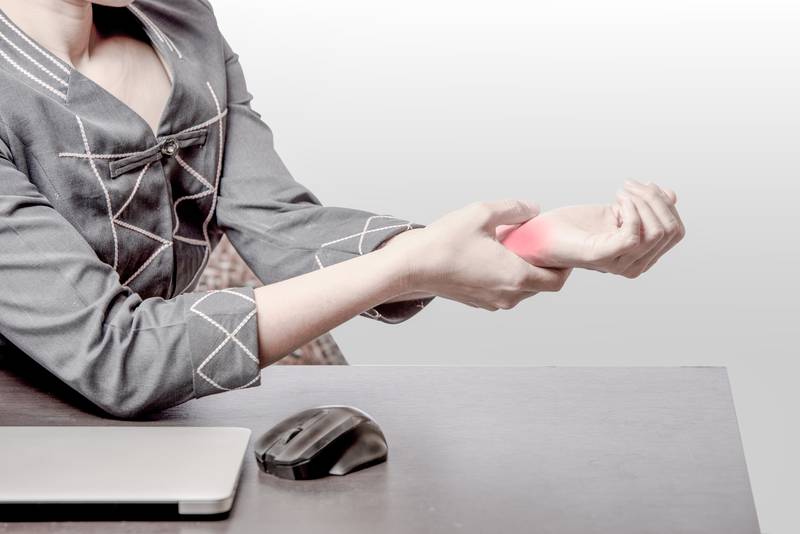By Meena Hami
You might be experiencing a different sensation in your fingers such as pins and needles, heaviness or even numbness, but they don’t last very long. You wait and over a period of time these symptoms get worse and the sensation increases. Eventually they are so strong that you cannot shake the pins and needles away and you wake in the middle of the night constantly, unable to go back to bed. You wait even longer, it is now difficult for you to grip or hold onto things like the kettle or even a cup of tea. You may even drop these items occasionally.
If these symptoms sound familiar to you, you could be suffering from carpal tunnel syndrome. But what is carpal tunnel syndrome? It is when the median nerve is compressed by either swelling, an external pressure or by narrowing the tunnel that the nerve runs through in in the wrist by bending the wrist the wrong way. Usually carpal tunnel affects your thumb, index, middle finger and half of your ring finger.
What are the classic symptoms?
- Pins and needles/tingling
- Numbness
- Waking up at night initially because hand feels like “it is going to sleep”
- May start with intermittent symptoms but could develop to continuous symptoms
- Aggravation of symptoms with specific activities such as driving, picking up kitchen objects, cutting food up and more
- Late signs may include thumb muscle atrophy and muscle weakness
What can my physiotherapist do to help?
If your physiotherapists are trained to treat carpal tunnel, they can help to eliminate or alleviate your symptoms and assist with managing activities that you are struggling with.
Common treatment strategies:
- Wearing a night splint, sometimes needed to be worn during the day also
- Resting hand
- Pain relieving treatment including soft tissue releases
- Nerve and tendon glide exercises
- Activity modifications
- Progressing to strengthening wrist muscles
But I am already getting carpal tunnel surgery, should I still get it treated?
Yes! You are setting the nerve up for a better results post operatively by taking action now. Symptoms can sometimes stick around for many months after surgery; even 12 months post operatively if you have late carpal tunnel signs.
Taking some of the pressure off the median nerve leading up to surgery will help the nerve regain regular function again earlier.
If you get the carpal tunnel treated early enough in the earlier stages, you may even avoid surgery!
As the scenario above, if carpal tunnel is left untreated it can progress to cause muscle atrophy (reduction in size of the muscles) and muscle weakness. Symptoms can often get worse and affect your daily living and sometimes even lead to permanent damage if it has progressed significantly.
If this sounds familiar we can help. Call us on 9960 3798 to book a consultation with one of our experienced physiotherapists.
